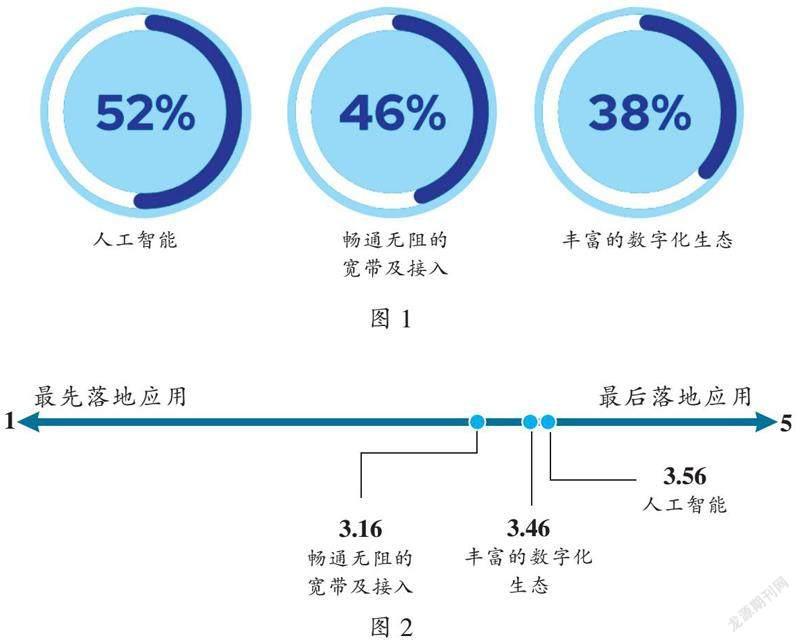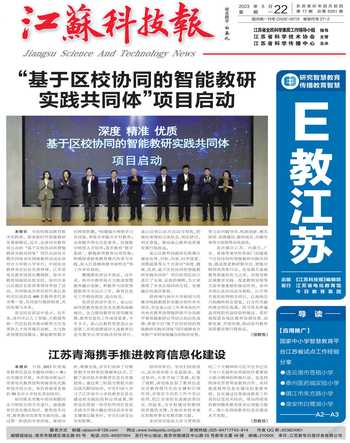2023年基础教育创新驱动力报告: 技术篇(一)

INTRODUCTION
CoSNs Driving K-12 Innovation initiative convenes an international Advisory Board of about 100 education and technology experts to select the most important topics impacting teaching, learning, and education innovation around the globe — the top Hurdles (barriers), Accelerators (mega-trends), and Tech Enablers (tools) for the upcoming year. This publication focuses on the Top 3 Tech Enablers for 2023.
2023 TOP 3 TECH ENABLERS
1.ARTIFICIAL INTELLIGENCE
Interfaces that mimic the complexity and function of human brain processes, such as decision-making, learning, evolving, problem-solving, perceiving, and demonstrating creativity. Their capabilities and intelligence processes may be quite different from those of humans (consisting of algorithms, rules, data sets, etc. related to specific domains), but fulfill similar functions — sometimes surpassing human capabilities and sometimes outmatched by them. These technologies encompass machine learning, natural language processing, deep learning, computer perception, etc. As we move forward, we need to look at ethics surrounding the use of AI.
2.UNTETHERED BROADBAND & CONNECTIVITY
Ubiquitous broadband Internet and the underlying technologies that enable robust connected learning — without requiring devices to be physically connected (via cables, for example). These technologies enable mobility and learning anytime, anywhere.
3.RICH DIGITAL ECOSYSTEM
Connecting systems or digital environments can form powerful digital ecosystems for enabling student learning and/or supporting education administration. These interconnected systems of online and virtual spaces can span formal school settings and beyond.
EXPLORING THE 2023 TECH ENABLERS
1.BY IMPORTANCE
Top 3 most important Tech Enablers for education systems to leverage in 2023 (63 respondents),see Figure 1.
2.BY IMMEDIACY
Top 3 Tech Enablers in order of the immediacy of its adoption at scale by schools worldwide, as ranked by the Advisory Board (Scores reflect the average score out of 5, with 1 being the most immediate adoption; 5 being the furthest away from adoption; 63 respondents),see Figure 2.
譯文
简介
由美国学校网络联合会(CoSN)负责的《2023年基础教育创新驱动力报告》是由近100位教育和技术专家组成的国际咨询委员会,对影响全球教学、学习和教育创新的主题——最重要的挑战、趋势和近期的技术驱动因素进行筛选、讨论和分析整理得出的报告。本报告重点介绍2023年对基础教育创新有重大意义的三大技术驱动因素。
2023年排名前三的技术驱动因素
1.人工智能
人工智能是指模拟人脑功能及其工作过程的技术,例如决策、学习、进化、解决问题、感知和创造。人工智能的容量和智能过程可能与人类大不相同(主要是由特定领域的相关算法、规则、数据集等组成),但具有人类大脑相似的功能,有时甚至超越人类的智能,但有时还不及人类。目前人工智能技术主要包括机器学习、自然语言处理、深度学习、计算机感知等。随着人工智能的广泛应用,我们需要进一步审视和关注使用人工智能的道德规范问题。
2.畅通无阻的宽带及接入
无处不在的宽带互联网和基础技术让泛在学习成为可能。这些技术使随时随地的学习成为可能。
3.丰富的数字化生态
通过与系统或数字环境建立连接从而形成强大的数字生态系统,可以支持学生的学习以及教育行政管理,并利用这些互联互通的在线虚拟空间拓展传统的校园环境。
2023年技术驱动因素探索
1.按重要性排序
根据63名专家受访者投票结果,得出2023年教育系统中最重要的三个技术驱动因素重要性排序,如图1所示。
2.按技术落地实施的先后顺序
咨询委员会对全球学校大规模落地实施相关技术的难易程度进行排序,排在前三的技术如图2所示(63名专家给出反馈,分数为平均分,满分5分。1表示最先落地应用;5表示最后落地应用)。

